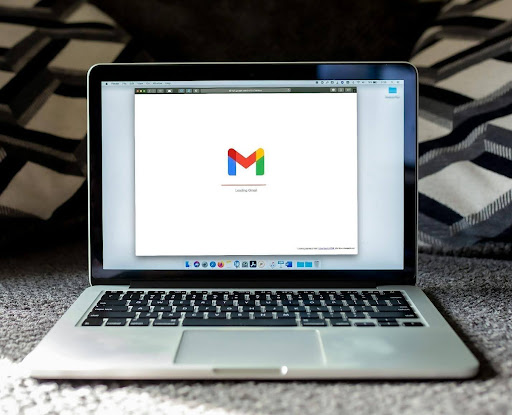7 email security practices all modern businesses need

Email has been a primary form of communication in workplaces for over two decades. In fact, data suggests that more than 360 billion emails are exchanged globally every day, with employees receiving approximately 120 emails on average each day. However, emailing also makes it easy for malicious actors to steal sensitive business data through various tactics, including malware and phishing campaigns.┬Ā
The cost of reported cybercrime has increased significantly over the past few years, highlighting the risk that your business may face. The good news, however, is that it is possible to mitigate it by securing your emails. In this blog, we cover best practices for safeguarding sensitive information and maintaining customer trust, so keep reading!
Utilize robust passwords
Creating strong passwords is one of the important things to do when it comes to safeguarding your emails from unauthorized access. In the past, complex passwords were recommended, but the issue with them is that they can be very difficult to remember, often resulting in people writing them on a sticky note or saving them on their desktops, both of which are risky ways to store a password.
However, the National Institute of Standards and Technology suggests focusing on password length instead of complexity, using passphrases (which essentially represent a longer sequence of words, rather than a traditional password) ŌĆō for instance, sunshinebutterflyrainbow ŌĆō and implementing a company password policy to ensure everyone understands the requirements for password security. ItŌĆÖs also imperative to encourage employees not to use predictable passwords, such as 1223456, or a birthdate. ┬ĀThese measures will help defend against attackers who can easily target weak passwords.
Never reuse passwords
Password reuse happens when you use the same password for different online services and accounts. This is never a good idea because it poses a serious risk; suppose one of your accounts is hacked, all of the other accounts get compromised, making it easy for cybercriminals to exploit weaknesses.
Encourage your team members to adopt good password management habits, such as changing passwords frequently or using a unique password for each account, as this will help safeguard your company.
Use a business email┬Ā
Business emails are among the best gateways to winning your audienceŌĆÖs trust. A superior business email will do numerous things, from managing your calendars and projects, to organizing your emails in customizable ways, to integrating with more client emails. One of the best catalysts of their popularity? Encryption. Email encryption ensures that only the intended recipient can access and read the message content. In other words, this solution helps secure communication between the sender and the receiver, preventing various threats, such as attackers compromising business emails or intercepting communications.
Additionally, you can choose a business email that allows you to use a custom domain. The first impact is when the recipient spots your email, and the address can make or break the experience. ItŌĆÖs one thing to send emails under something like ŌĆ£[email┬Āprotected]ŌĆØ, and a completely different thing to send them under ŌĆ£[email┬Āprotected].
When setting up your email account, itŌĆÖs good practice to choose a business email that offers a complete package of advantages so that youŌĆÖll cater to the needs of all modern customers, including nailing your mail management.
Beware of phishing
Email phishing is a common tactic used by cybercriminals to deceive individuals into downloading malicious software or revealing sensitive information. ItŌĆÖs imperative to raise awareness about this tactic and safeguard your company from potential threats. These phishing emails can imitate banks, claiming thereŌĆÖs an emergency, so that recipients feel compelled to respond immediately.
Unfortunately, doing so could make you a victim, so itŌĆÖs essential to take preventive measures and stay safe. First, you should be cautious of any emails you receive from an unknown sender and check for suspicious attachments or links. Moreover, before downloading or clicking anything, you should verify the authenticity of an email, and doing so is very simple, as normally there will be signs like unfamiliar sender details or misspelled domain names.
Implement 2FA
While using complex passwords can help, itŌĆÖs not enough to safeguard your business email accounts. Instead, consider adding an extra layer of protection with two-factor or multi-factor authentication. This is a code that you will receive on your phone via a text message or an authentication app, which you will be required to enter to prove that you have possession of this device.
This solution creates an additional barrier for unauthorized users, and even if they gain access to your password, it will not be possible for them to access your account without completing this step. This makes 2FA a great security method to prevent phishing attacks, and whatŌĆÖs really great about it is its compatibility with many services.
Avoid using public Wi-Fi
Using public Wi-Fi networks makes you a target for cybercriminals, as it becomes easier for them to access sensitive information, such as corporate emails. Whenever someone logs in to their company email while connected to a public Wi-Fi, attackers can grab private information like passwords, usernames and so on with tools such as packet sniffers, which represent a hardware or software program that analyzes network traffic by examining data packets.
While you may not be actively checking your email, you could still be at risk due to automatic updates that leak your credentials and content. This is why itŌĆÖs always good practice to avoid using public Wi-Fi whenever possible. If you need to do so, however, use a VPN to secure your connection and exercise caution when sharing sensitive information over the network.
Keep personal and professional communications separate
You should never use corporate emails for personal tasks, as this increases the risk of unauthorized access and data breaches. Set clear email usage policies to ensure that everyone knows what is acceptable and what isnŌĆÖt and avoid issues like spear phishing.
Combining professional and personal communications also blurs professional boundaries, leading to a negative brand image and complicating data management.
Final thoughts
Safeguarding your email is essential, especially if you use email marketing a lot in your business. Your organization handles sensitive data, including mailing lists, financial details, and customer information. If bad actors gain access to this data, it could seriously damage your reputation and result in significant losses. This is why it is best to be proactive and adopt the email security practices discussed above, as they will ensure smooth business operations and communication. ┬Ā




